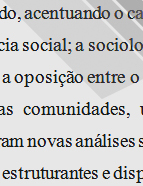

................................
Although there are many publications in the field of education and culture, both in the First Republic and in the Estado Novo, very few address the theme of institutions, focusing instead on pedagogical or educational policy aspects. Collections of legislation have been published and, in the Estado Novo, a great deal of statistical data. Nevertheless, Alfredo Bensaúde (1856/1941) Notas Histórico-Pedagógicas sobre o Instituto Superior Técnico (1922) is worth mentioning. The first part is dedicated to the evolution of the institute, comparing it with other foreign schools and providing statistical data on students and teachers. The second part deals with pedagogical processes and practical work. It uses statistical sources and documents from the institution’s own archives. Borges Grainha (1862/1925), with his preface to História do Colégio de Campolide da Companhia de Jesus, contada pelos próprios (1913), is a libel against the Jesuits that served as the basis for the discussion on the crimes of the Jesuits in the Chamber of Deputies and the Senate. He used bibliographic sources, the press and sources from the college. Bernardino Machado (1851/1944), A Universidade de Coimbra (1908) is dominated by political criticism and a history of the university based on bibliographic sources and the UC archives. Pedro José da Cunha (1867/1945), A Escola Politécnica de Lisboa (1937) is a work celebrating the centenary of the Polytechnic School. It brings nothing new compared to other similar works. Augusto Joaquim Alves dos Santos (1866/1924), Primary Education in Portugal in its relations with the General History of the Nation (1913) provides a history of the institutionalisation of primary education, before focusing on the 1911 reform. It mainly uses legislative sources. And Luis de Pina (1901/1972), Faculdade de Letras do Porto [School of Arts and Humanities of Porto]. Breve História (Brief History), (1968). In the field of culture, Gustavo de Matos Sequeira (1880-1962) is worth mentioning with his História do Teatro Nacional Dona Maria II (History of the Dona Maria II National Theatre), 1955, and O Palácio Nacional da Ajuda: Resenha Histórica (The Ajuda National Palace: Historical Review), Lisbon, Direção-Geral da Fazenda Pública, 1961. Also noteworthy is the contribution of legal historians (see further discussion of this topic in the relevant entry in this DHP), among whom we highlight Guilherme Braga da Cruz (1916-1977), Direitos da Família (Family Rights), Coimbra, 1942; Adriano Pais da Silva Vaz Serra (1903-1989), A enfiteuse no direito romano, peninsular e português (Emphyteusis in Roman, Peninsular and Portuguese law), 1926 (doctoral thesis); António Pinto de Meireles Barriga (1897-1972), Land Easements in Peninsular and Portuguese Law, 1932; Cabral de Moncada (1888-1974), “Possession for a Year and a Day and Acquisitive Prescription in Portuguese Municipal Customs”, 1926; “The ‘18th century’ in Pombal’s legislation”, 1925, and “Time, ‘Trastempo’ and acquisitive prescription in Portuguese municipal customs”, 1929.
This work is financed by national funds through FCT - Foundation for Science and Technology, I.P, in the scope of the projects UIDB/04311/2020 and UIDP/04311/2020.
